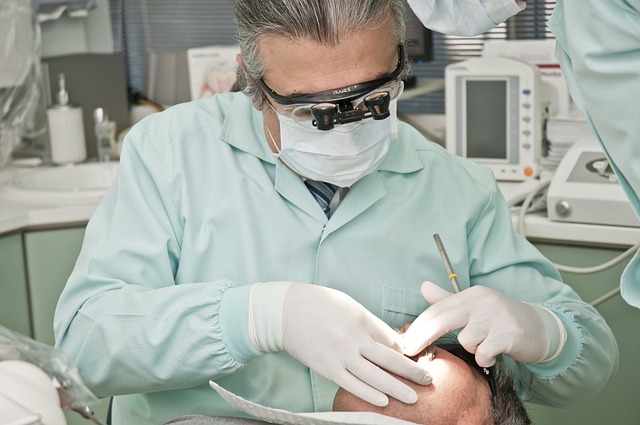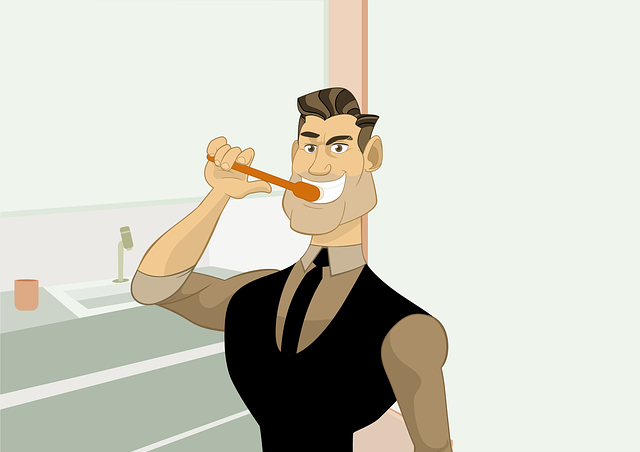Should You Wear Retainers Forever? Dental Insights
Have you ever wondered if wearing retainers forever is necessary? The topic of whether or not to wear retainers indefinitely has been a subject of debate among dental professionals and patients alike. In this article, we will delve into the insights provided by dental experts to help you make an informed decision. With a confident and knowledgeable approach, we aim to present a neutral perspective on this matter, shedding light on the pros and cons, so you can better understand the importance of retainers in maintaining a healthy and straight smile. Let’s explore the world of dental insights together, and uncover whether you should wear retainers forever or not.
1. Understanding the Importance of Retainers in Maintaining Dental Health
Retainers play a crucial role in maintaining dental health and ensuring the long-term success of orthodontic treatment. After braces or other orthodontic appliances are removed, the teeth have a tendency to shift back to their original positions. This is where retainers step in to preserve the progress achieved during orthodontic treatment. Retainers are custom-made devices that are usually made of plastic or metal and are designed to hold the teeth in their new positions.
There are several reasons why retainers are important:
- Prevent teeth from shifting: Retainers act as a safeguard against the natural tendency of teeth to move back to their original positions. This is particularly important in the first few months after orthodontic treatment, as the teeth are still settling into their new positions.
- Maintain bite alignment: Retainers also help maintain the proper alignment of the upper and lower teeth, ensuring a correct bite. This is essential for optimal chewing, speaking, and overall oral function.
- Preserve treatment results: Wearing retainers as directed by your orthodontist ensures that the time, effort, and investment you put into your orthodontic treatment are not wasted. It helps to preserve the straightened teeth and prevent the need for further orthodontic intervention in the future.
Remember, consistency is key when it comes to wearing retainers. Your orthodontist will provide specific instructions on how often and for how long you should wear your retainers. By diligently following these guidelines, you can maintain your dental health and enjoy the benefits of a beautiful, straight smile for years to come.
2. Debunking the Myth: Do You Really Need to Wear Retainers Forever?
Many people who have undergone orthodontic treatment wonder if they need to wear retainers forever. There is a common misconception that once the braces are off, the teeth will stay perfectly aligned forever. However, this is not the case. Wearing retainers after orthodontic treatment is crucial to maintain the results achieved and prevent any potential relapse.
Here are some key reasons why wearing retainers is essential:
- Stabilizing the teeth: After braces or aligners are removed, the teeth need time to settle into their new positions. Retainers help hold them in place and prevent any shifting that may occur during this period.
- Maintaining alignment: Over time, the natural forces of chewing, talking, and teeth grinding can cause the teeth to move. Wearing retainers as prescribed by your orthodontist helps maintain the alignment achieved through orthodontic treatment.
- Preventing relapse: Orthodontic relapse refers to the teeth shifting back to their original positions after treatment. This can happen if retainers are not worn consistently. By wearing retainers as advised, you can significantly reduce the risk of relapse and ensure the long-term success of your orthodontic treatment.

3. The Long-Term Benefits of Consistent Retainer Use
Consistent retainer use can have numerous long-term benefits for individuals seeking orthodontic treatment. By diligently wearing retainers as instructed by your orthodontist, you can ensure the longevity of your new smile and avoid potential relapse.
Here are some of the key long-term benefits of consistent retainer use:
- Preserves Teeth Alignment: Retainers help maintain the alignment of your teeth by preventing them from shifting back to their original position. This is particularly important in the first year after orthodontic treatment, as teeth have a tendency to move.
- Prevents Relapse: Wearing retainers consistently can greatly reduce the risk of relapse, which refers to the teeth shifting back to their pre-treatment position. By committing to retainer use, you can protect the investment you made in your orthodontic treatment.
- Improves Oral Health: Retainers not only keep your teeth aligned but also contribute to better oral health. Straight teeth are easier to clean, reducing the risk of plaque buildup, gum disease, and tooth decay.
By understanding , you can make an informed decision to prioritize this crucial aspect of your orthodontic treatment. Remember, wearing your retainer as recommended by your orthodontist is the key to maintaining your beautiful smile for years to come.

4. Balancing Retention Needs: Factors to Consider
When it comes to balancing retention needs, there are several factors that organizations should consider. By taking these factors into account, businesses can create effective strategies to retain their valuable employees. Here are some key factors to consider:
- Compensation and Benefits: Offering competitive salaries and comprehensive benefits packages is crucial for employee retention. Organizations need to ensure that their compensation and benefits align with industry standards and meet the needs and expectations of their employees.
- Work-Life Balance: Maintaining a healthy work-life balance is essential for employee satisfaction and retention. Companies should strive to create a flexible work environment that allows employees to manage their personal and professional lives effectively.
- Career Development Opportunities: Providing growth and advancement opportunities is a great way to retain employees. Organizations should offer training programs, mentorship opportunities, and clear career paths to demonstrate their commitment to the professional development of their workforce.
Additionally, a positive work culture, recognition and rewards programs, and open communication channels also contribute to employee retention. It is important for organizations to regularly assess and address these factors to create an environment where employees feel valued and motivated to stay.

5. Expert Advice: How Long Should You Wear Retainers After Orthodontic Treatment?
After completing orthodontic treatment, it is crucial to wear retainers to maintain the results and prevent teeth from shifting back to their original position. But how long should you wear retainers? The duration can vary depending on individual factors, but here is some expert advice to guide you:
1. Follow your orthodontist’s recommendation: Your orthodontist knows your specific case and will provide the most accurate guidance. They will assess your teeth’s stability and recommend a duration for wearing retainers. It is essential to follow their advice to ensure the best long-term results.
2. Initial full-time wear: Typically, after orthodontic treatment, you will need to wear your retainers full-time for a certain period, usually around six months. Full-time wear means wearing your retainers all day and night, only removing them for eating and cleaning. This helps stabilize your teeth in their new position and allows the surrounding tissues to adapt to the changes.

6. Retainers vs. Relapse: Preventing Teeth Shifting
Retainers and preventing teeth shifting go hand in hand. After orthodontic treatment, it’s essential to wear retainers to maintain the beautiful alignment of your teeth. Here’s a breakdown of the key differences between retainers and relapse, as well as some effective strategies to prevent teeth shifting:
Retainers:
- Retainers are custom-made appliances designed to hold teeth in their corrected positions.
- There are two types of retainers: removable and fixed.
- Removable retainers can be taken out for eating, brushing, and flossing.
- Fixed retainers consist of a thin wire bonded to the back of the teeth.
- Retainers are typically worn full-time initially, and then gradually transitioned to nighttime only.
Preventing Teeth Shifting:
- Consistency is key – wear your retainers as prescribed by your orthodontist.
- Maintain proper oral hygiene to prevent gum disease and tooth decay, which can contribute to teeth shifting.
- Avoid habits like nail-biting, teeth grinding, and excessive thumb-sucking that can put pressure on your teeth.
- Regular dental check-ups will help identify any potential issues early on.
- If you experience any discomfort or notice your teeth shifting, consult your orthodontist promptly.
7. Making an Informed Decision: Weighing the Pros and Cons of Long-Term Retainer Use
When deciding whether to use a long-term retainer, it’s important to carefully consider both the advantages and disadvantages. Here, we present the pros and cons to help you make an informed decision:
Pros:
- Stability: Long-term retainers provide a reliable way to maintain the alignment of your teeth, preventing them from shifting back to their original positions.
- Convenience: Unlike removable retainers, long-term retainers are bonded to the back of your teeth, eliminating the need for frequent removal and insertion.
- Minimal visibility: With long-term retainers placed behind the teeth, they are virtually invisible to others, allowing you to confidently smile without any concerns.
- Efficacy: Studies have shown that long-term retainers are highly effective in preventing relapse and keeping the teeth in their desired positions over the long term.
Cons:
- Maintenance: Long-term retainers require regular maintenance, including professional cleanings and periodic checks by your orthodontist to ensure they remain intact and properly functioning.
- Accumulation of plaque: Since long-term retainers are fixed, they can accumulate plaque more easily than removable retainers, necessitating thorough oral hygiene practices.
- Cost: The initial placement of long-term retainers can be more expensive compared to removable retainers, and any required repairs or replacements may incur additional costs.
- Discomfort: Some individuals may experience initial discomfort or speech difficulties when adapting to wearing a long-term retainer, although this typically diminishes with time.
Frequently Asked Questions
Q: Should you wear retainers forever?
A: Retainers play a crucial role in maintaining the alignment of your teeth, but whether you should wear them forever depends on individual circumstances.
Q: What is the purpose of wearing retainers?
A: Retainers help to keep your teeth in their desired position after orthodontic treatment, preventing them from shifting back to their original placement.
Q: How long should you wear retainers after orthodontic treatment?
A: It is generally recommended to wear retainers full-time for the first few months after orthodontic treatment, and then gradually transition to wearing them only at night. The duration can vary based on the complexity of the treatment and the individual’s unique dental situation.
Q: Can wearing retainers at night be sufficient?
A: In many cases, wearing retainers only at night can be sufficient to maintain the alignment of your teeth. However, it is important to consult with your orthodontist to determine the optimal wearing schedule for your specific situation.
Q: Will my teeth shift if I stop wearing retainers?
A: Yes, without proper retainer use, there is a possibility that your teeth may shift over time. Teeth have a natural tendency to move, and wearing retainers helps to counteract this movement, ensuring your smile remains beautifully aligned.
Q: Can wearing retainers forever cause any harm?
A: Wearing retainers as directed by your orthodontist should not cause any harm. However, it is crucial to follow their instructions to prevent any potential complications or discomfort.
Q: Are there any alternatives to wearing retainers forever?
A: In some cases, alternative orthodontic treatments such as fixed retainers or clear aligners may be recommended as an alternative to wearing removable retainers indefinitely. These options should be discussed with your orthodontist to determine the best approach for your dental needs.
Q: How often should I visit my orthodontist after treatment?
A: Regular visits to your orthodontist are essential to monitor the stability of your teeth and the effectiveness of your retainers. Typically, they will recommend periodic check-ups to ensure everything is going smoothly.
Q: Can I stop wearing retainers if I’m satisfied with the alignment of my teeth?
A: While you may be content with the alignment of your teeth, it is important to continue wearing retainers as directed by your orthodontist. Teeth can still shift over time, and wearing retainers helps to maintain the results achieved through orthodontic treatment.
Q: What should I do if my retainer no longer fits properly?
A: If your retainer no longer fits properly, it is essential to contact your orthodontist as soon as possible. They will assess the situation and provide guidance on whether adjustments, repairs, or replacement are required to ensure the continued effectiveness of your retainer.
Remember, always consult with your orthodontist to receive personalized advice tailored to your specific dental needs.
Wrapping Up
In conclusion, the decision of whether to wear retainers forever is a topic that requires careful consideration. While there is no one-size-fits-all answer, several key takeaways can help guide your decision-making process.
Firstly, it is important to recognize that wearing retainers for an extended period can help maintain the alignment of your teeth and prevent any potential relapse. This is particularly relevant if you have undergone orthodontic treatment or have experienced significant teeth shifting in the past.
Secondly, consulting with your dentist or orthodontist is crucial. They possess the necessary expertise to evaluate your unique dental situation and provide personalized advice. They can assess the stability of your teeth and determine whether wearing retainers indefinitely is necessary or if a gradual reduction in usage is appropriate.
Thirdly, it is essential to understand that retention is a lifelong commitment. Even if your orthodontist advises against wearing retainers indefinitely, periodic check-ups and follow-ups are necessary to ensure the long-term stability of your teeth.
Lastly, maintaining good oral hygiene practices is vital regardless of whether you wear retainers or not. Regular brushing, flossing, and dental visits are essential components of a healthy dental routine and should not be neglected.
In summary, the decision to wear retainers forever depends on various factors, including your dental history and the advice of your dentist or orthodontist. By considering these key takeaways and seeking professional guidance, you can make an informed decision that ensures the long-term health and alignment of your teeth.






